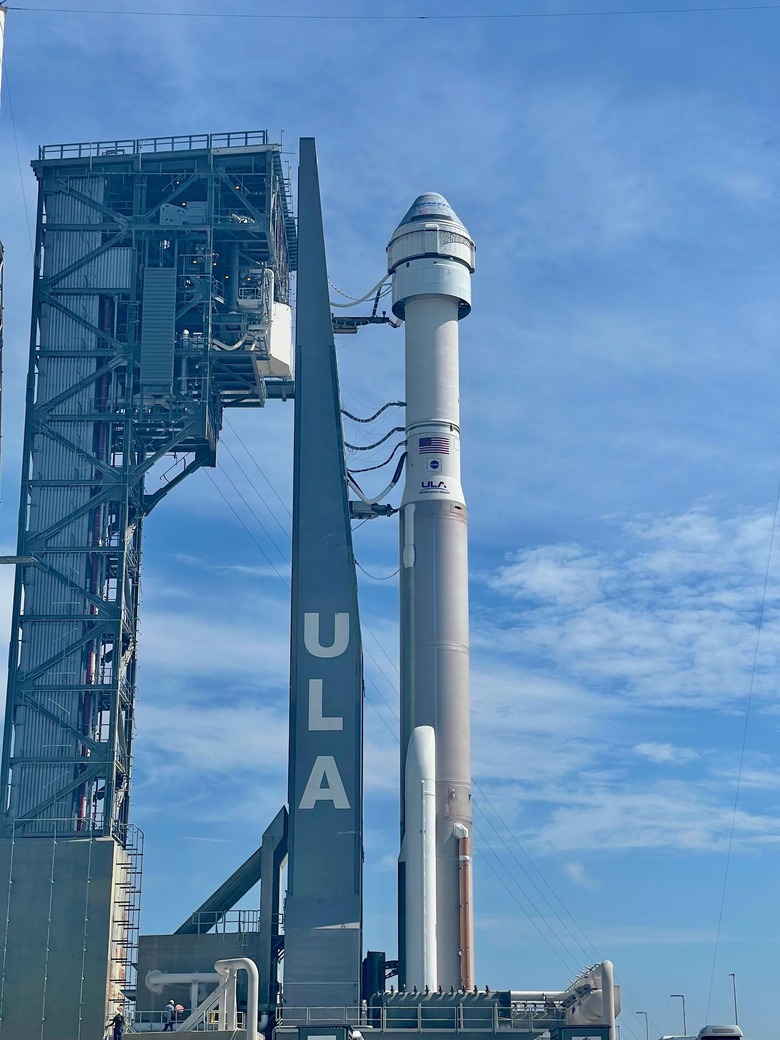NASA Delays Boeing Starliner OFT-2 Launch After Russia's ISS Mishap
NASA and Boeing have postponed today's Orbital Flight Test-2 launch attempt, pushing back the Starliner test into August as work continues on the International Space Station. The orbiting research platform was unexpectedly jolted this week, after what's been described as a software glitch caused the newly-arrived Russian module to light up its thrusters.
The Roscosmos Multipurpose Laboratory Module (MLM), named Nauka, had arrived at the ISS early in the morning on Thursday, July 29. While leak checks were being undertaken between the Nauka and the service module it was attached to, the MLM thrusters fired unintentionally. That moved the ISS out of orientation.
"The crew was never and is not in any danger," NASA said in a statement, "and flight controllers in Mission Control Houston are monitoring the status of the space station."
However, the space agency added that it would be monitoring the situation and the potential impact on the Boeing Starliner test that was initially intended to take place today, Friday, July 30. On Thursday, the spacecraft – atop a United Launch Alliance Atlas V rocket – had been moved into place on the launch pad at Cape Canaveral. As seemed likely, the launch today has been scratched.

"NASA and Boeing have elected to stand down from Friday's launch attempt of the agency's second Orbital Flight Test (OFT-2) mission," NASA confirmed. "Currently, the earliest available launch opportunity is 1:20 p.m. EDT Tuesday, Aug. 3. The International Space Station team will use the time to continue working checkouts of the newly arrived Roscosmos Nauka multipurpose laboratory module (MLM) and to ensure the station will be ready for Starliner's arrival."
The actual launch date will be decided closer to the event itself, after the International Space Station and Commercial Crew Program teams have a chance to figure out what – if any – impact to the ISS has been sustained. The OFT-2 mission comes after Starliner failed to reach the ISS back in December 2019, triggering an investigation into the project. Since that investigation concluded in mid-2020, Boeing has been working on implementing changes and fixes.
The goal is to show that Starliner can reach the ISS, dock safely, and then be inspected by the Expedition 65 astronauts onboard. There'll be no crew onboard the spacecraft for OFT-2, though a successful completion of that mission will pave the way for a crewed flight. That may not take place until 2022, however.
Currently, NASA and Boeing are assessing whether the Atlas V rocket with Starliner atop it should be moved back into the Vehicle Integration Facility. That would provide an extra degree of weather protection, though the assembled vehicle is currently in flight-ready condition and does "not require any near-term servicing" before the rescheduled launch attempt, NASA says.
